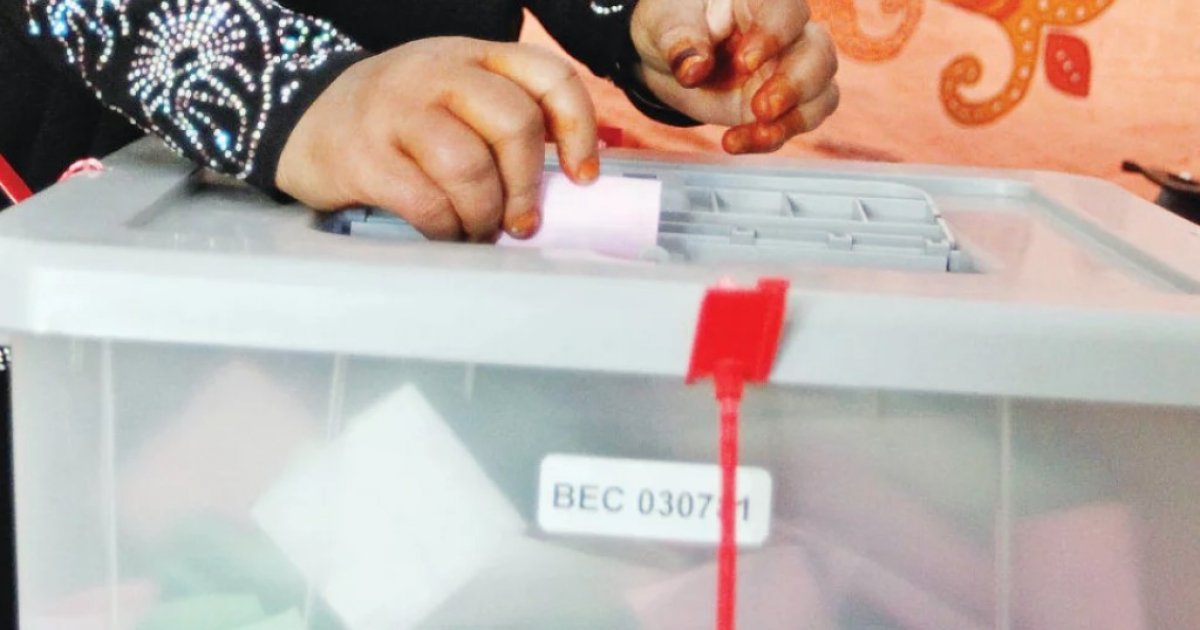With the 13th national parliamentary election scheduled for February, questions are growing over how prepared the country’s administration is to manage the process. Officials and employees at the Secretariat report multifaceted dissatisfaction, including inter-cadre inequalities and demands to reduce pay disparities under the new pay scale. Meanwhile, the government has begun reorganizing field administration in preparation for the polls.
Sources said a form of inertia has set in across the administration, with coordination lacking at multiple levels. Demands to reduce disparities in promotions, cadre inequality, and allowances under the new pay scale have intensified.
Secretariat employees are actively pursuing their own demands, while mandatory retirements and Officer on Special Duty (OSD) activities continue. Some appointed secretaries and senior secretaries are unable to join their posts, and a group of self-serving officers and employees are reportedly involved in obstructive activities, generating tension that is further exacerbated by “ghost” promotions. As a result, government operations have slowed, raising doubts about the administration’s readiness for the elections.
Unchecked rises in commodity prices and a deepening economic crisis are worsening public hardship. Law enforcement and administrative agencies have not been fully effective, contributing to growing public insecurity. Recent incidents of vandalism, arson, and violence against women have heightened concerns.
Observers note that the interim government has faced criticism for its handling of mob violence and law-and-order situations. In response, the government has only condemned attacks and promised action against perpetrators, which many critics consider insufficient. Chief Adviser Professor Muhammad Yunus has repeatedly stated that his government follows a “zero-tolerance” policy against mobs, but no practical examples have been observed. Experts say creating a stable electoral environment under these conditions is a major challenge.
Investigations reveal administrative disputes over Deputy Secretary promotions. The Bangladesh Administrative Service Association (BASA) has raised objections, while the Inter-Cadre Inequality Elimination Council has rejected vague reports and anti-public proposals from the Public Administration Reform Commission. Various cadre associations, including BCS (Family Planning) and retired employees, are demanding allowances at rates of 20–30%, fueling intense dissatisfaction.
The BCS (Statistics) Cadre Association protested that although the reform commission proposed restructuring civil services, their cadre was marked “not applicable,” effectively rendering the service non-existent. The BCS (Information-General) Cadre Association also criticized the merging of three groups — “General,” “Event,” and “Message” — into a single Bangladesh Information Service, warning it could create an ineffective service.
Teachers, who play a key role in elections, are actively pursuing their demands, creating additional challenges for the government. Ensuring their participation in classes before involving them in election work is considered critical.
Since Sheikh Hasina’s government left office on August 5, 2024, a “mob culture” has emerged nationwide and continues unchecked. The government’s failure to punish individuals involved in mobs and other crimes has been widely criticized. Trials continue under existing law, and many accused have been granted bail. Despite assurances, public fear and anxiety over law and order persist. Experts warn that without strict measures before the election, the situation could deteriorate further.
As part of preparations, the Ministry of Public Administration has begun creating a new fit list to appoint Deputy Secretaries as District Commissioners (DCs). Interviews for 40 Deputy Secretaries were conducted between October 29 and 31, most from the 29th BCS batch. Those appointed will oversee the upcoming election.
Chief Adviser Professor Muhammad Yunus held meetings with officials from various ministries regarding election preparations, deciding that the most capable officers will be posted as DCs in high-risk areas. No one will be posted in their home districts or where relatives are contesting elections. Officials involved in the last three elections will not be assigned key roles. Political affiliation, physical fitness, and performance records, including media reports of misconduct, will be considered.
An additional secretary of the Ministry of Public Administration said a fit list for 64 districts is ready, with further selection directives from the top government to ensure neutrality and efficiency. Most DCs are expected to be replaced by mid-November.
A former cabinet secretary emphasized that political influence should not affect administration, and competent officials are essential for a fair election.
Senior Secretary Md Ehsanul Haque told Dhaka Tribune: “There is no alternative to a competent administration for conducting a fair election. Not only DCs, but the government is reorganizing the entire administration to ensure a smooth election.”



